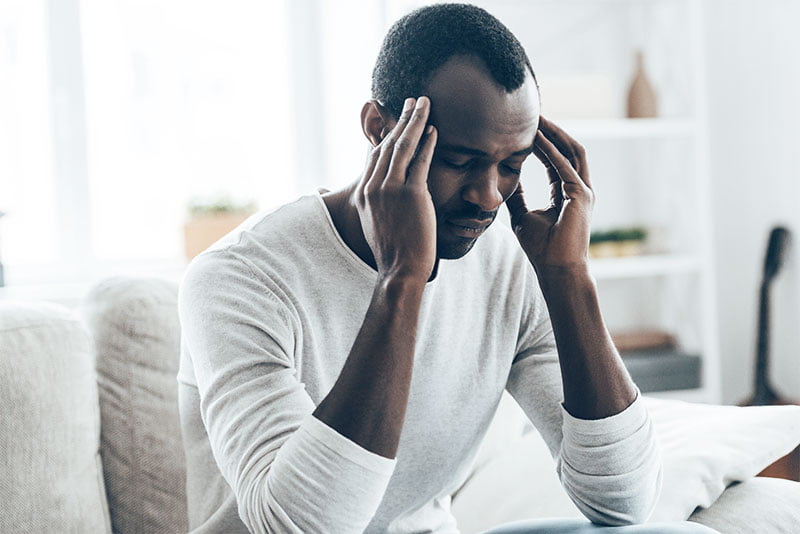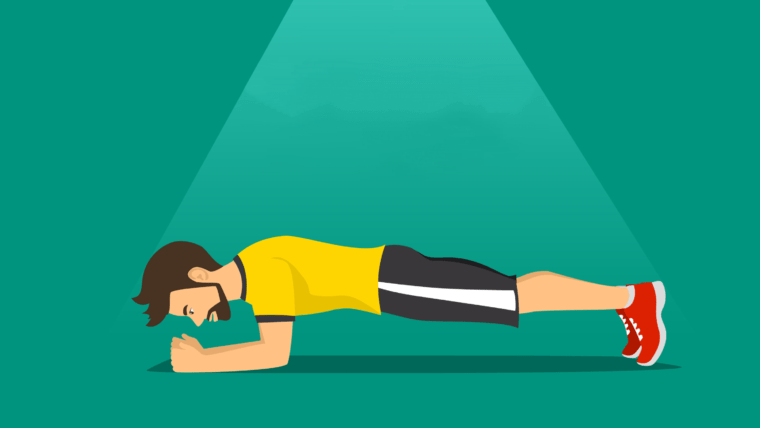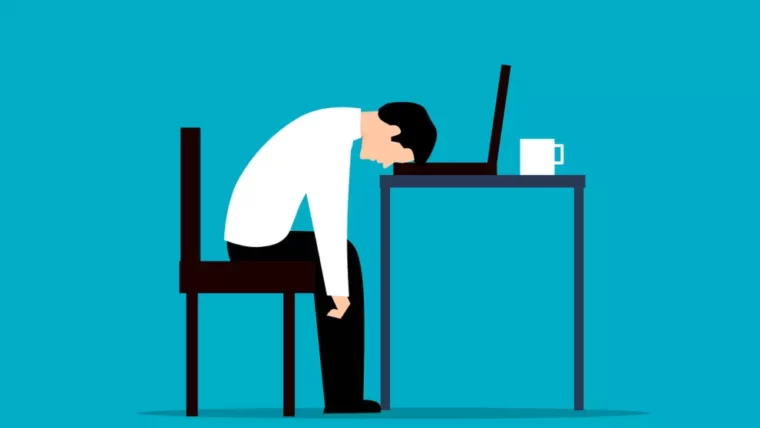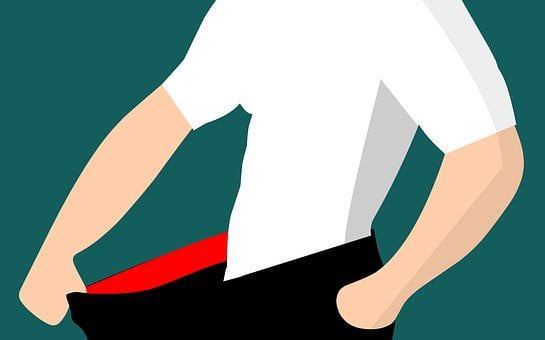There is no perfect way to overcome stress and depression. It takes time and patience, but it is possible to overcome these feelings.
Stress and depression are some of the most common mental health issues that people face. They can cause a lot of damage to one’s physical and mental health.
The article talks about how to overcome stress and depression by having a positive outlook on life.
What Causes Stress
Stress and depression are tricky topics. Millions of people across the world live with these disorders every day, and there are no clear-cut answers to why they develop. However, there are several factors that may lead to a state of stress or depression.
Stress is a part of life and it can lead to depression. It is important to know the causes of stress in order to avoid them or handle them better. Stress can be caused by many different things like pressure, deadlines, expectations, or unrealistic demands.
Some of the most frequent causes for stress are the following:
- The Workplace
- Our Relationships
- Finances
- Health
- Death of a Loved One
- Our Appearance and Personality
- Our Past
- Personal issues
- Pressures of studies
- Unemployment
- Losses e.g. bereavement
- Unexpected news
- Daily hassles
- Thinking styles
- Negativity: “I’m useless, a loser, a failure.”
- Suspicion: “Why are they so nice to me?”
Best Ways to Overcome Stress and Depression
There are many ways to overcome stress and depression. The most important thing is to acknowledge that it exists and that you can’t always avoid it.
1. Exercise
Exercise is extremely important as a way to overcome stress and depression.
It might seem contradictory, but putting physical stress on your body through exercise can relieve mental stress. You can also see improved performance when working on studies as well as increased concentration.
People who exercise regularly report feeling less anxiety than those who do not. It’s a feat that’s best achieved by the active & health-conscious!
Get up and exercise! It feels great when you’re feeling sluggish, and it can help with a few things that may be going on in your life, such as gaining more energy or reducing stress.
Activities such as walking or jogging are great ways to release stress in small doses that can provide large boosts of confidence. The repetitive movements in particular are a major asset and can be completed for 30 minutes a day without any complications.
2. Deep Breathing
Taking a few deep breaths can take the pressure off you for good and help you remain relaxed.
You can easily do this from wherever you are – behind your desk, while driving in your car, or at the grocery store when you are hunting for groceries. Instead of fighting with the kids, just close your eyes and imagine different scenarios with whatever toy they are asking for!
Deep breaths have been shown to reduce stress and relieve depression. When you take a deep breath, your body’s natural response is to slow down the physiological process of your heart rate and breathing. This technique has been used for thousands of years both as a medical treatment and as a spiritual practice.
3. Avoid Caffeine, Alcohol, and Nicotine
The effects of caffeine, alcohol, and nicotine are well known. Many people take these substances to help relieve stress and depression, but an unintended consequence is that they are actually causing these conditions.
It can be difficult to avoid caffeine and nicotine because they are found in many of the drinks that are both common and socially accepted. However, this is by no means impossible, you just need to reduce your consumption each day in order for it not to negatively impact your diet or health.
A study in the journal Nicotine & Tobacco Research found that a high dose of caffeine can be as stimulating as cocaine. It also found that low doses of nicotine can worsen depression symptoms.
Drinking caffeine and alcoholic beverages before exercising may cause over-hydration, which can trigger a stress response in the body. Instead of drinking caffeinated and alcoholic drinks, save your electrolytes (water, herbal teas, diluted natural fruit juices) and hydrate before exercising.
4. The Power of Sound
Listening to music is a long-established way to relax the body. Research proves that listening to music can have an incredible effect on your mood and in some cases, even reduce stress levels.
Slow, relaxing music can have positive health benefits & allow you to lower your blood pressure and heart rate as well as reduce stress hormones.
The types of music that might make you relax the most are music that only words can describe – Classical, Celtic, Native American & Indian. These acoustic sounds allow our mind to wander and experience the world outside ourselves.
Nature sounds can also provide some relaxation. They’re often integrated into music for this particular reason.
5. Write It Down
While there are many ways to reduce your stress levels, one approach that has worked for people is writing it all down.
I always keep a small notebook with me when I need to write down anything that’s on my mind. Letting your thoughts flow freely is an excellent way to relieve some stress in my opinion.
Freewriting can be relaxing and can sometimes provide clarity. If you feel stuck, write for 5 minutes without worrying about the quality of your content.
6. Learn to Say ‘No’
Stress is caused when you have too much to do and not enough time in which to do it. Many people will agree to take on additional responsibility, but this can cause problems for other personal aspects of your life.
Getting more familiar with saying “no” will help you develop more self-confidence and reduce your stress levels.
To say “No”, you need to understand why you find it difficult. Many people find it really hard to say No, because they’re trying to be helpful and liked. For others, it is because of a fear of rejection, conflict, or missed opportunities. Remember that these barriers to saying “No” are all completely your own.
You might feel reluctant to respond to a request with a straight “No”, at least at first. Instead, think of some pre-prepared phrases to let other people down more gently.
7. Laugh
It’s hard to feel anxious when you’re laughing. It’s good for your health, and there are a few ways it may help relieve stress:
- Relieving your stress response.
- Relieving tension by relaxing your muscles.
In the long term, laughter can also help improve your immune system and mood.
A study among people with cancer found that people in the laughter intervention group experienced more stress relief than those who were simply distracted.
Try watching a funny TV show or hanging out with friends who make you laugh.
8. Get in touch With Yourself
If you feel your stress levels rising, try listening to your body. What does it need at the moment? It often helps to tap your chest, stomach, and back, massage your fingers and joints or rub your hands together vigorously.
Try to always stand with both feet planted squarely on the ground, which gives you a sense of stability. We are used to acting according to what we think and have forgotten how to listen to our body, which knows what is truly good for us.
9. Eat Well & supplements
Eating a regular, well-balanced diet will help you feel better in general. It may also help control your moods. Your meals should be full of vegetables, fruit, whole grains, and lean protein for energy.
And don’t skip any. It’s not good for you and can put you in a bad mood, which can actually increase your stress.
Several supplements promote stress and anxiety reduction. Here is a brief overview of some of the most common ones:
- Lemon balm: Lemon balm is a member of the mint family that has been studied for its anti-anxiety effects.
- Omega-3 fatty acids: One study showed that medical students who received omega-3 supplements experienced a 20% reduction in anxiety symptoms.
- Ashwagandha: Ashwagandha is an herb used in Ayurvedic medicine to treat stress and anxiety. Several studies suggest that it’s effective.
- Green tea: Green tea contains many polyphenol antioxidants which provide health benefits. It may lower stress and anxiety by increasing serotonin levels.
- Valerian: Valerian root is a popular sleep aid due to its tranquilizing effect. It contains valerenic acid, which alters gamma-aminobutyric acid (GABA) receptors to lower anxiety.
- Kava kava: Kava kava is a psychoactive member of the pepper family. Long used as a sedative in the South Pacific, it is increasingly used in Europe and the US to treat mild stress and anxiety.
Some supplements can interact with medications or have side effects, so you may want to consult with a doctor if you have a medical condition.
10. Relax Your Muscles
When you’re stressed, your muscles get tense. You can help loosen them up on your own and refresh your body by:
- Stretching
- Enjoying a massage
- Taking a hot bath or shower
- Getting a good night’s sleep
11. Chew Gum
For a super easy and quick stress reliever, try chewing a stick of gum.
One study showed that people who chewed gum had a greater sense of wellbeing and lower stress.
One possible explanation is that chewing gum causes brain waves similar to those of relaxed people. Another is that chewing gum promotes blood flow to your brain.
Additionally, one recent study found that stress relief was greatest when people chewed more strongly.
12. Talk to Someone
Just talking to someone about how you feel can be helpful.
Talking can work by either distracting you from your stressful thoughts or releasing some of the built-up tension by discussing it.
Stress can cloud your judgment and prevent you from seeing things clearly. Talking things through with a friend, work colleague, or even a trained professional, can help you find solutions to your stress and put your problems into perspective.
13. Spend Time With Your Pet
Having a pet may help reduce stress and improve your mood.
Interacting with pets may help release oxytocin, a brain chemical that promotes a positive mood.
Having a pet may also help relieve stress by giving you purpose, keeping you active, and providing companionship — all qualities that help reduce anxiety.
14. Manage Your Time
At times, we all feel overburdened by our ‘To Do‘ list and this is a common cause of stress. Accept that you can not do everything at once and start to prioritize and diarise your tasks.
Make a list of all the things that you need to do and list them in order of genuine priority. Note what tasks you need to do personally and what can be delegated to others to do. Record which tasks need to be done immediately, in the next week, in the next month, or when time allows.
By editing what might have started out as an overwhelming and unmanageable task list, you can break it down into a series of smaller, more manageable tasks spread out over a longer time frame, with some tasks removed from the list entirely through delegation.
Remember as well to create buffer times to deal with unexpected and emergency tasks, and to include time for your own relaxation and well-being.
15. Spend Time With Friends and Family
Social support from friends and family can help you get through stressful times.
Being part of a friend network gives you a sense of belonging and self-worth, which can help you in tough times.
One study found that for women, in particular, spending time with friends and children helps release oxytocin, a natural stress reliever. This effect is called “tend and befriend,” and is the opposite of the fight-or-flight response.
Keep in mind that both men and women benefit from friendship.
Another study found that men and women with the fewest social connections were more likely to suffer from depression and anxiety.
Conclusion
For me, this is the best and yet most stressful time of the year in which my rituals support and guide me. Perhaps some of them are right up your alley, or others you can adapt a little to suit you better. It is fascinating and rewarding to learn how different and yet similar we all are and perhaps the whole point is simply finding out what works best for us.
I wish you an exciting and relaxing time!










25+ Motivational Quotes By Famous People For Your Success
How Important to Have Sexual Compatibility in a Relationship? 5 Signs
10 Real Ways To Make Money From Home For Free
How to Choose your friends wisely – 10 Tips
Top 5 Freelancing Websites To Earn Online in Pandemic
Make Your Girlfriend Happy
Motivation for Men: Facts, Secrets, and Success Mantra
10 Real Ways To Make Money From Home For Free